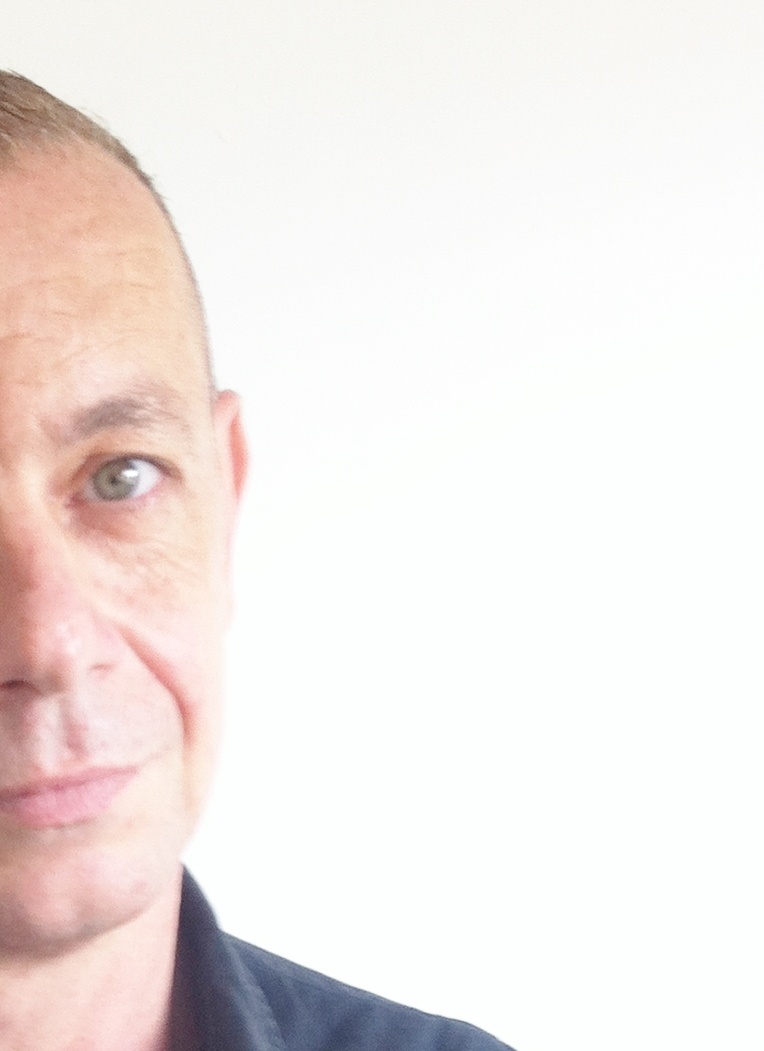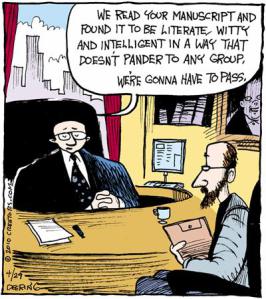Guest Post: Six Failproof Tips Guaranteed to get you signed by a Literary Agent. Probably. By Richard Hennerley
In the days when I (naively) still entertained hope that a literary agent somewhere might be interested in my work I came to form my own impressions of them and how they worked.
Drawing on the benefit of that experience, I’d like to present to you my own (not entirely) tongue-in-cheek list of tips that WILL get you signed up. And that’s a 100% money back promise!
The most important to thing to remember, if you want to get signed, is that literary agents are almost stereotypically white, middle-class, conservative and highly risk-averse ladies and gentlemen who lunch and they probably went to a better school than you did. It’s these particular characteristics of agents that have informed the construction of my list….
Here we go, top tips to get you a literary agent:
1. Have a BA (Hons) in Eng Lit from Oxford or Cambridge. This means that an agent can be sure that, even if you churn out plot-free, turgid nonsense at least it will be turgid nonsense with good grammar and spelling: and even if the grammar and spelling isn’t actually that good that’s because you’re being “clever” and “ground-breaking” in your “manipulation and reinvention of the English language.” In a literary agent’s eyes an Oxbridge BA Eng Lit (Hons) is the equivalent of Beatification and Papal Infallibility all rolled into one.
2. Be a celeb. Blindingly obvious one this, really. You’re a celeb, people know you, you have a ready-made fan base who will buy anything with your name on it. To an agent, publishing a “book” by a celeb is a no-brainer (literally…). And if you have absolutely nothing to say and your writing skills don’t extend beyond “the cat sat on the mat,” don’t worry, it’s just your name we need, darling, and, anyway, that’s what editors and ghostwriters are for.
3. Be a journalist. Once again, pretty obvious. I mean, if you’re a journalist you’ll definitely be able to write a good book, right? After all, as a journalist, you will have had years and years of utilising your famed journalistic abilities of critical thinking and “having a great nose for a story” by reproducing other peoples’ press releases word for word and surely all that copying must have taught you something about writing? Surely? Its also useful to note here that you will get double points for being a journalist if you work for the BBC (that being the most middle class of media outlets…) or a nice magazine like The Lady or The Spectator.
4. Be “P.L.U.” This is a slightly more complex concept. Let me explain. “P.L.U.” means “People Like Us.” This is the question a literary agent would have, invariably, asked him/herself before casting your unread manuscript into the never to be read slush pile. Agents like to deal in known quantities, they don’t like straying out of their comfort zone and they’re not happy dealing with people who, well, who just aren’t like them. So, how do you make yourself P.L.U.? Here’s a checklist:
- Be (at least) middle-class.
- Live in London or the nicer parts of the Home Counties (not Luton).
- Express an interest in wholesome and class appropriate activities such as horse riding
- Ensure that your targeted agent is a friend, a friend of the family, or the friend of a friend.
- Do not be working class.
- Do not live in The North.
- Be white (which is blindingly bloody obvious, really).
5. Do not write about (I can barely bring myself to type the word..) homosexuals. Writing that features homosexuals scares the life out of agents. If they should accidentally pick up your manuscript because they’ve confused it with a copy of The Lady magazine or Sporting life they will, upon spying the gay bit, throw your work into the air and run screaming from the room. However, there are exceptions. You can get away with gayness if you’re an already established and famous gay media figure (preferably a bit silly and very camp, like proper gay people are supposed to be…) or your portrayal of gays might be acceptable if it features them:
- Being extremely unhappy and tortured individuals.
- Only able to find a modicum of happiness when they settle into a relationship and adopt/surrogate/steal a child (it being a well known fact that all gays are actually really desperate to have children to bring meaning to their otherwise empty lives).
- Getting beaten to death by rough trade pick ups/rentboys.
- Receiving their just desserts and dying horribly of AIDS (this is a particularly effective tactic for sneaking gayness into your work).
6. Be “gender-appropriate” in your writing. This means that, if you’re male, you should only write books that involve guns, fighting, detectives and monsters. If you’re female you need to stick to romance, children and female detectives. Remember, blokes write certain types of books, and women write other types, do not confuse your potential agent by trying to blur any boundaries here…oh, and if you are a bloke trying to write a book for kids, you had better soooo forget that idea.
That’s it! Simples! Adopt my 6 tips and I guarantee that an agent will sign you up in six months…..probably.
Pic: writingpublishing.com
Richard Hennerley













